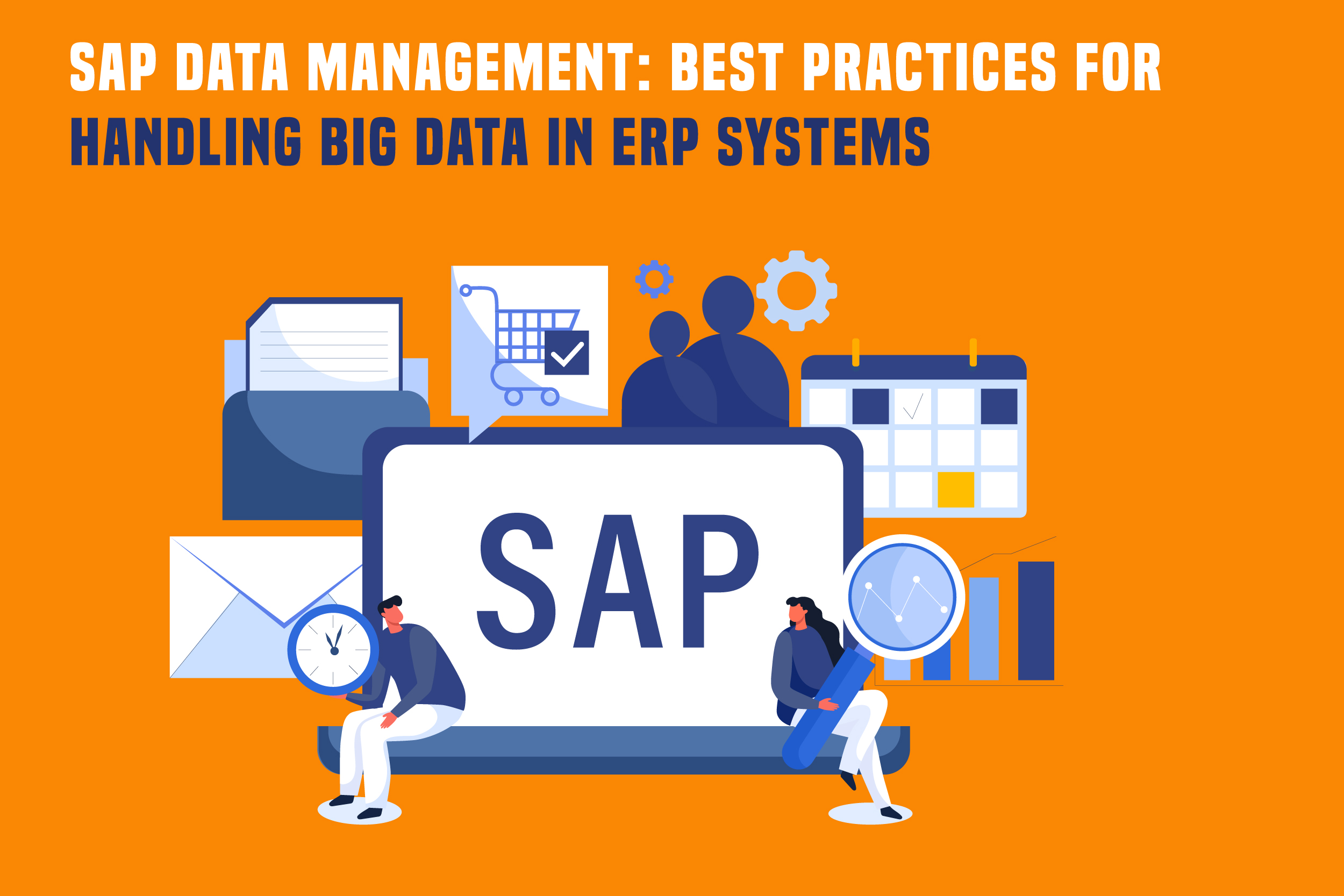
In enterprise resource planning (ERP), SAP systems are robust solutions that efficiently manage and integrate various business processes. As businesses accumulate massive volumes of data, effective SAP data management becomes crucial for optimal performance. This article delves into the best practices for handling big data within SAP ERP systems, emphasizing the role of SAP consulting services in achieving seamless operations.
SAP systems are renowned for their ability to streamline business operations, but as data grows exponentially, organizations face storage, processing, and analysis challenges. Implementing best practices for handling big data in SAP ERP systems requires a strategic approach, and engaging SAP consulting services proves instrumental in navigating this complex landscape.
One key aspect of efficient SAP data management involves data governance and quality. SAP consulting services are pivotal in establishing robust data governance frameworks and ensuring data accuracy, completeness, and consistency.
The SAP ERP systems often interact with various data sources within an organization. SAP consulting services assist in designing and implementing effective data integration strategies, enabling seamless data flow across different modules and departments. This ensures a holistic view of business operations and enhances overall efficiency.
Security is paramount when handling big data, and SAP consulting services address this aspect comprehensively. So, they assist in implementing robust security measures to safeguard sensitive information. This includes role-based access controls, encryption, and regular security audits to identify and mitigate potential vulnerabilities.
So, scalability is a key consideration for businesses experiencing growth of the organization. SAP consulting services help organizations design scalable architectures to accommodate increasing data volumes without compromising performance. This ensures that SAP ERP systems can adapt to the evolving needs of the business.
So, SAP consulting services provide the expertise to implement best practices, including data governance, integration, performance optimization, security, and scalability. By partnering with experienced consultants, organizations can unlock the full potential of their SAP ERP systems
In the realm of SAP consulting services, they are navigating the ever-evolving ERP landscape. It involves addressing the paramount concern of handling big data efficiently. As businesses generate and accumulate vast amounts of data, optimizing SAP ERP systems for effective data management becomes crucial for maintaining competitiveness and fostering innovation. In this blog post, we will explore the best practices for handling big data in SAP ERP systems, ensuring that organizations can harness the full potential of their data while maintaining system performance, integrity, and security.
Before delving into best practices, grasping the unique challenges big data poses within SAP ERP systems is essential. SAP ERP applications are pivotal in managing various business processes, including finance, supply chain, human resources, etc. So, as data volumes surge, ERP systems face challenges related to data storage, processing speed, and real-time analytics.
So, one of the primary strategies for handling big data in SAP ERP systems is data segmentation and archiving. This involves categorizing data based on relevance and importance to ongoing business processes. In addition, historical or less frequently accessed data can be archived, reducing the load on the live system.
Define a comprehensive data retention policy that outlines the criteria for archiving data. Consider factors such as legal requirements, business relevance, and performance impact. Regularly review and update this policy to adapt to changing business needs.
This comprehensive guide wouldn’t be complete without a dedicated exploration of the crucial role played by SAP consulting services. Understand how these specialized services bring expertise, experience, and tailored solutions to the table, guiding businesses through the intricacies of SAP data management.
SAP HANA, an in-memory data platform, has revolutionized how ERP systems handle big data. SAP HANA enables faster data access and real-time analytics by storing data in RAM instead of traditional disk storage. So, organizations should leverage the capabilities of SAP HANA to enhance the performance of their ERP implementation systems.
Work closely with SAP HANA experts to optimize data models for efficient in-memory processing. So, utilize features such as columnar storage and data compression to maximize the benefits of in-memory computing.
Moreover, the cloud offers a scalable and flexible infrastructure for handling big data. Integrating SAP ERP systems with cloud platforms allows organizations to scale resources dynamically based on demand, ensuring optimal performance during peak times.
Choose a reliable and secure cloud service provider that aligns with the specific requirements of your SAP ERP system. So, IT consulting services are crucial in guiding organizations through this decision-making process. When selecting a cloud provider, consider data residency, compliance, and integration capabilities.
Additionally, in the era of data-driven decision-making, real-time analytics have become indispensable. SAP ERP systems should be configured to provide actionable insights in real-time, enabling organizations to respond promptly to market changes and opportunities.
SAP Fiori, a user experience (UX) design approach, can be leveraged to create intuitive, responsive dashboards for real-time reporting. So, customize Fiori apps to suit your organization’s and end-users specific analytics needs.
As data volumes increase, ensuring data security and compliance becomes more challenging. In addition, organizations must implement robust security measures to protect sensitive information and comply with regulatory requirements.
Implement RBAC to restrict access to sensitive data based on user roles and responsibilities. So, regularly audit user access and permissions to ensure compliance with data protection regulations.
Additionally, maintaining data quality is critical for the success of any ERP implementation system. Big data often comes with increased complexity, and organizations must establish data cleansing, validation, and enrichment processes.
Develop a comprehensive data governance framework that includes data quality standards, data stewardship roles, and data cleansing procedures. So, regularly monitor and address data quality issues to prevent inaccurate or incomplete information accumulation.
Scalable architectures are critical for creating systems that can manage rising workloads and evolve over time. The ability of a system to accommodate additional users, data, or transactions without losing speed is referred to as scalability. Here are two fundamental ideas and factors to consider while creating scalable architectures:
Scalability is a key consideration for organizations anticipating growth. SAP consulting services collaborate with businesses to design scalable architectures that accommodate increasing data volumes without sacrificing performance. This proactive approach ensures that SAP ERP systems remain flexible and adaptive to the evolving needs of the business.
Cloud computing provides a scalable and flexible infrastructure for SAP ERP systems. SAP consulting services assist organizations in seamlessly integrating their SAP environments with cloud platforms, allowing for dynamic resource allocation and scalability. In addition, cloud integration enhances scalability and provides opportunities for cost optimization and improved disaster recovery capabilities.
Effectively handling big data in SAP ERP systems requires a holistic approach encompassing data segmentation, in-memory computing, cloud integration, real-time analytics, data security, and data quality management. By adhering to these best practices, IT consulting services can guide organizations in optimizing SAP data management. So, it ensures that big data within ERP systems is handled efficiently, securely, and in a manner that supports strategic business goals. By adopting these best practices, organizations can unlock the full potential of their data, drive informed decision-making, and maintain a competitive edge in today’s dynamic business environment. For more information, visit our website.

In today’s competitive business environment, organizations must be equipped with efficient, reliable, and scalable systems to manage their operations. Enterprise Resource Planning (ERP) solutions provide companies with the tools to streamline their processes, integrate various departments, and enable data-driven decision-making.
Among the vast array of ERP solutions, SAP is one of the most well-known, but it’s not the only option. Businesses must consider whether SAP or another ERP solution is the right fit based on their unique needs.
Read More
Enterprise Resource Planning (ERP) systems have become the backbone of modern business operations. Whether it’s handling financials, human resources, supply chains, or manufacturing processes, ERP solutions streamline and automate vital business functions, fostering efficiency and growth. SAP, one of the leading ERP platforms, is often the go-to choice for organizations due to its robust and customizable features. However, ERP implementation—whether SAP or another system—is not without challenges. This is where IT consulting services play a pivotal role.
The complexities of ERP implementations require specialized expertise, and IT consulting services provide the technical know-how, strategic planning, and ongoing support that are critical to successful deployment and long-term functionality.
Read More
In the rapidly evolving business landscape, enterprise resource planning (ERP) systems are essential for companies looking to streamline operations, improve data accuracy, and enhance decision-making processes. As we look toward 2025, the future of ERP implementation is promising, with significant trends emerging that are reshaping how organizations deploy and manage their ERP systems. From advancements in SAP implementation to innovations in IT consulting services, businesses must keep a keen eye on these trends to remain competitive.
Read More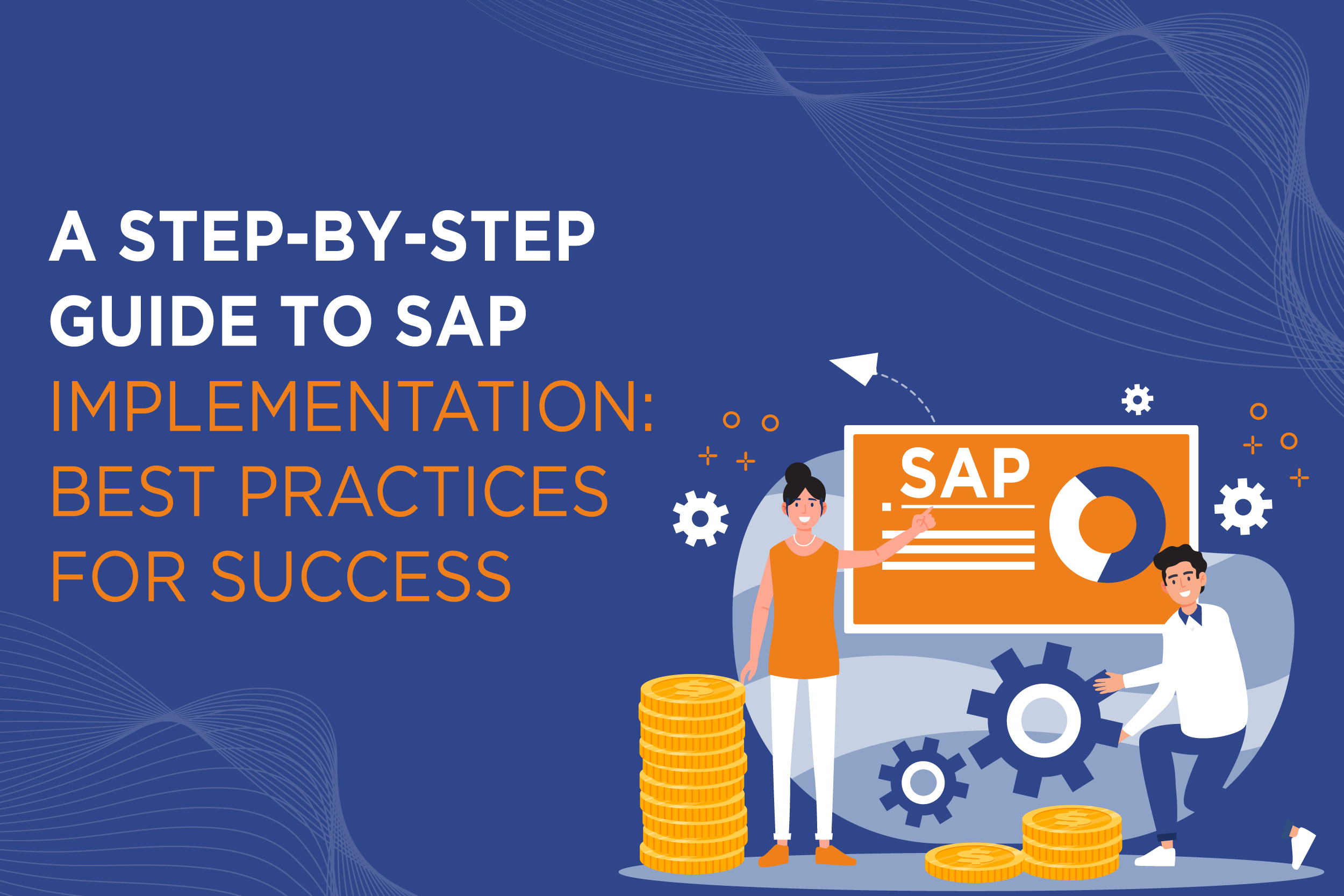
Implementing an SAP and ERP system is a major milestone for many organizations seeking to streamline operations, enhance efficiency, and support future growth.
However, SAP implementation is a complex and resource-intensive process that requires meticulous planning and execution. Done right, it can transform your business. Done wrong, it can lead to significant disruptions.
Read More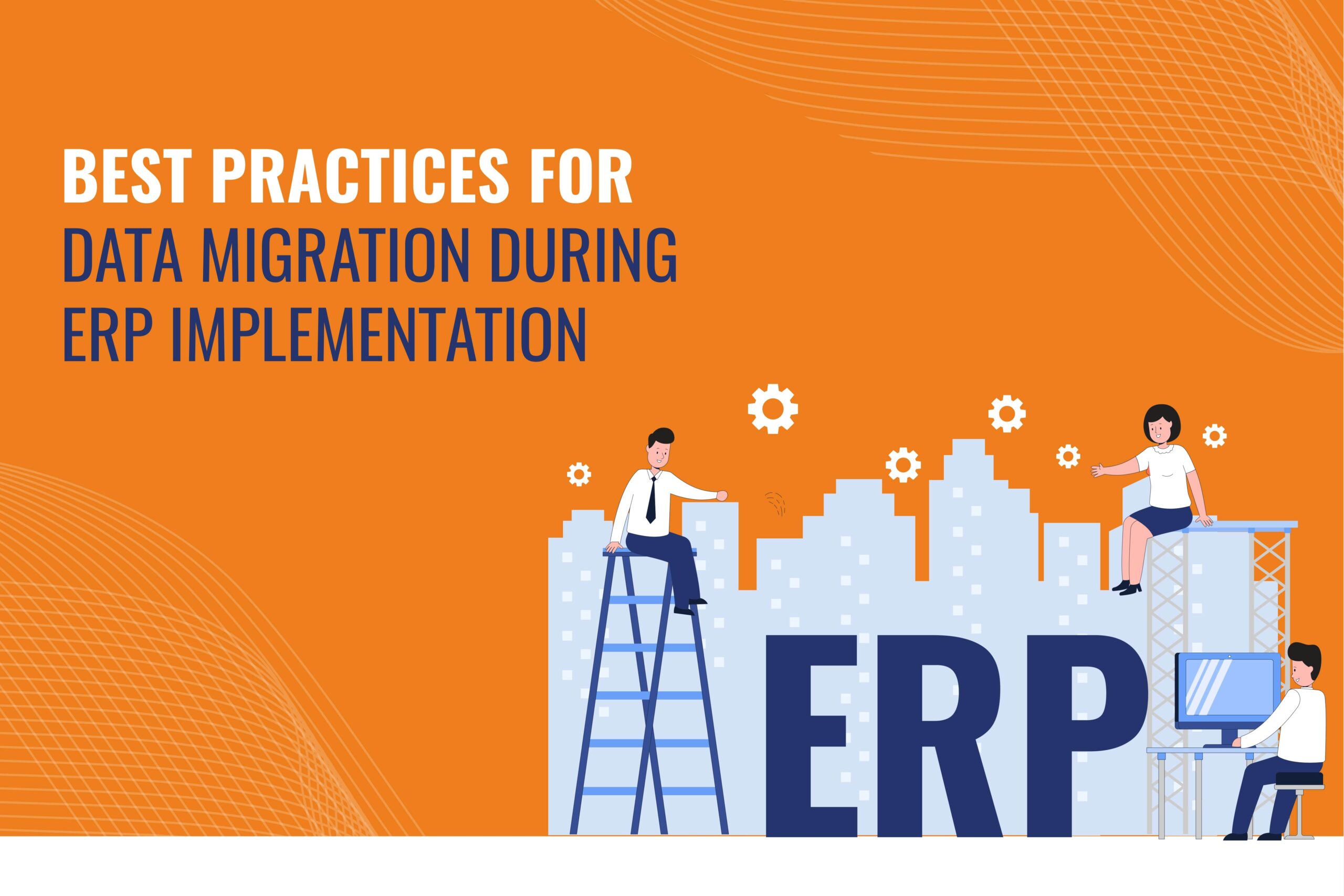
Implementing an ERP system is a transformative step for organizations, offering streamlined processes and strategic insights. However, the success of an ERP implementation largely depends on effective data migration, which involves transferring data from legacy systems to the new platform. This process is complex and requires meticulous planning to avoid disruptions to business operations.
Data migration involves activities like data extraction, transformation, cleansing, and loading (ETL). The goal is to ensure data from various sources is accurately transferred and integrated into the ERP system, maintaining data integrity and accessibility.
Organizations face several challenges during data migration. These include ensuring data quality, managing compatibility issues between different systems, handling the volume and complexity of data, minimizing downtime, and ensuring compliance with security regulations. Addressing these challenges is crucial for a successful ERP implementation.
To overcome these challenges, organizations should follow best practices. These include establishing clear objectives and scope for the migration, conducting comprehensive data assessments, and developing a robust migration strategy. Investing in data cleansing and transformation, engaging stakeholders, and performing rigorous testing and validation are also key. Additionally, implementing data governance and security measures, and planning for contingencies, are essential to mitigate risks.
Following these best practices ensures smooth data migration, enabling organizations to fully leverage their ERP systems’ potential. This paves the way for enhanced efficiency, agility, and competitiveness in the digital landscape, laying a solid foundation for future growth and digital transformation.
Read More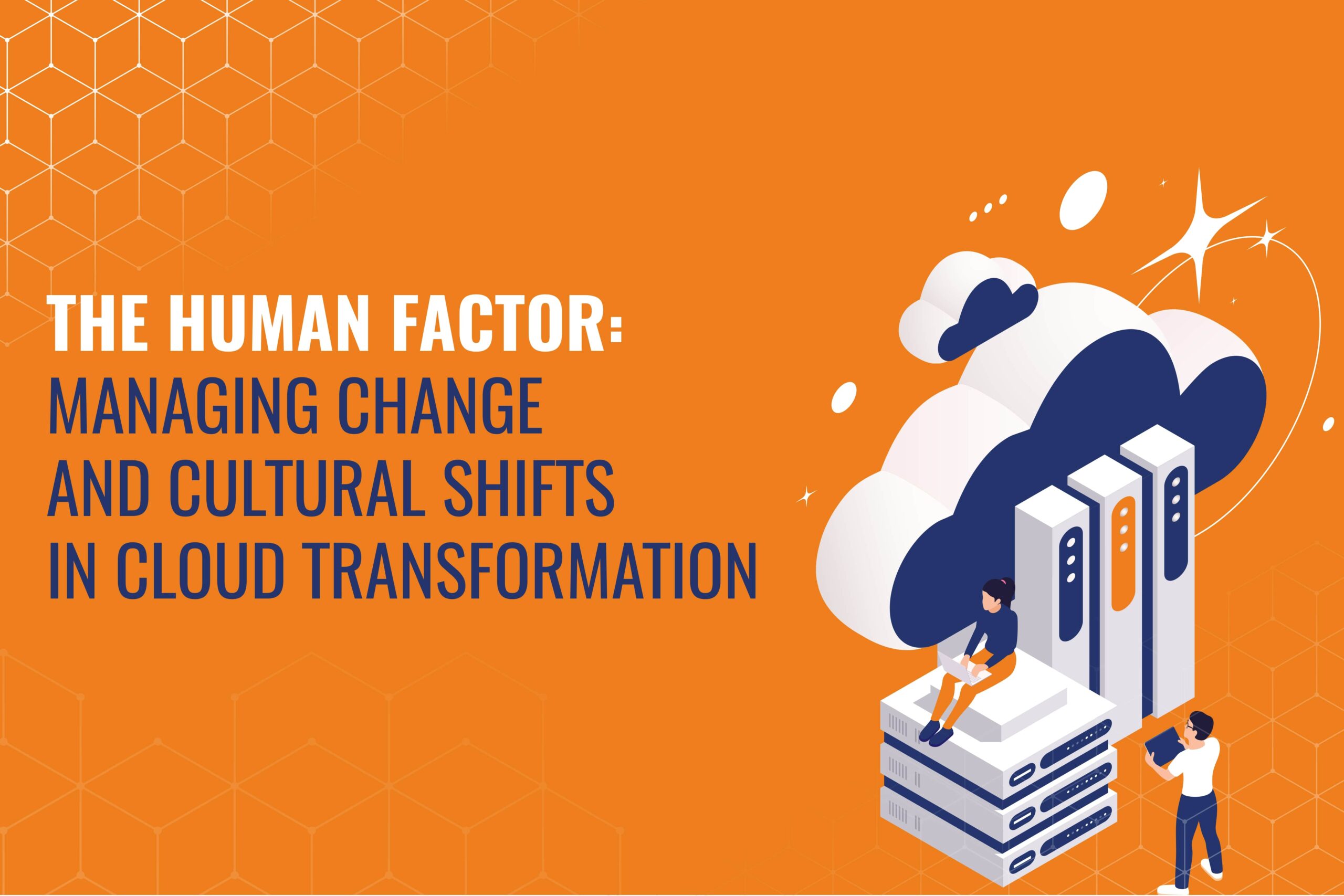
In the landscape of technological evolution, cloud transformation stands as a cornerstone for modern businesses seeking enhanced scalability, agility, and innovation. However, a critical yet often overlooked aspect lies beneath the surface of technical intricacies: the human factor. Managing change and cultural shifts is paramount for successfully adopting cloud technology.
At its core, cloud transformation extends beyond mere technological migration. So, it represents a fundamental shift in organizational culture and mindset. Embracing this shift requires a holistic approach that addresses technical challenges and the human elements within the organization.
Change management is a pivotal component of cloud transformation, facilitating the transition from traditional to cloud-native paradigms. Effective change management strategies involve clear communication, stakeholder engagement, and proactive efforts to address resistance to change.
Cultural shifts are intrinsic to cloud transformation as organizations strive to align their values and behaviors with core cloud principles such as agility, innovation, and customer-centricity. So, this involves breaking down silos, promoting cross-functional collaboration, and empowering employees to embrace new ways of working. Leaders are crucial in driving cultural change, championing cloud vision, and fostering a supportive environment encouraging experimentation and risk-taking.
So, workforce readiness emerges as a critical consideration in cloud transformation, requiring organizations to assess and enhance their employees’ skills and capabilities. Upskilling and reskilling initiatives can help bridge the gap between existing skill sets and the evolving demands of the cloud-native ecosystem. Additionally, providing adequate training, support, and incentives can empower employees to embrace the transformative potential of cloud technology.
Ultimately, successful cloud transformation hinges on effectively managing change and cultural shifts. By recognizing the human dimension of cloud adoption and investing in strategies that promote collaboration, innovation, and employee empowerment, organizations can unlock the full potential of the cloud and drive sustainable growth in the digital era.
Read More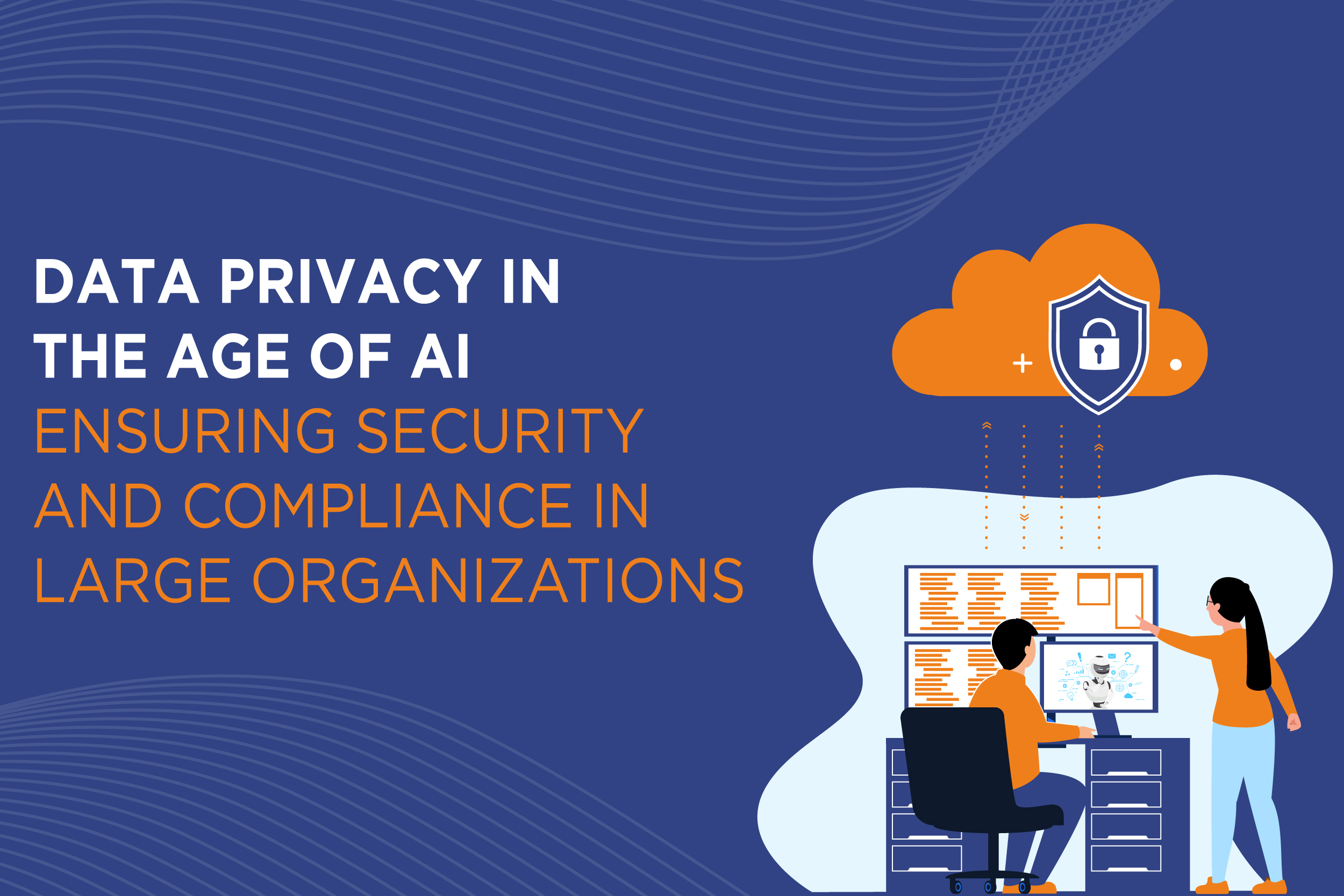
In the era of artificial intelligence (AI), ensuring data privacy is paramount for large organizations to maintain security and compliance with regulations. This challenge is accentuated by the vast amounts of data collected and processed by AI systems, heightening concerns about potential breaches and misuse.
Organizations must implement robust data privacy measures across the entire data lifecycle to address these concerns, from collection to disposal. This begins with implementing stringent access controls to limit who can interact with sensitive data and encryption to protect data both at rest and in transit. Additionally, this technique can remove personally identifiable information from datasets, reducing the risk of accidental exposure.
Furthermore, organizations must establish clear policies and procedures for data governance and compliance. This includes conducting regular audits to ensure adherence to data privacy regulations such as the General Data Protection Regulation (GDPR) and the California Consumer Privacy Act (CCPA). Moreover, employees should receive comprehensive training on data privacy best practices to foster a culture of compliance throughout the organization.
In parallel, organizations should invest in AI-specific security measures to safeguard AI models and algorithms. Additionally, deploying robust intrusion detection systems can help identify and mitigate potential threats to AI systems in real-time.
Collaboration with external stakeholders is also crucial for ensuring data privacy in the age of AI. This includes partnering with third-party vendors who adhere to stringent data privacy standards and regularly assessing compliance with these standards. Furthermore, engaging with regulatory bodies and industry groups can provide valuable insights into evolving data privacy requirements and best practices.
Despite these measures, the evolving nature of AI and data privacy regulations necessitates ongoing vigilance and adaptation. Organizations must continuously monitor Artificial intelligence and data privacy developments, updating their policies and technologies accordingly. By prioritizing data privacy and security, organizations can mitigate risks, build trust with stakeholders, and ensure long-term success in AI.
Read More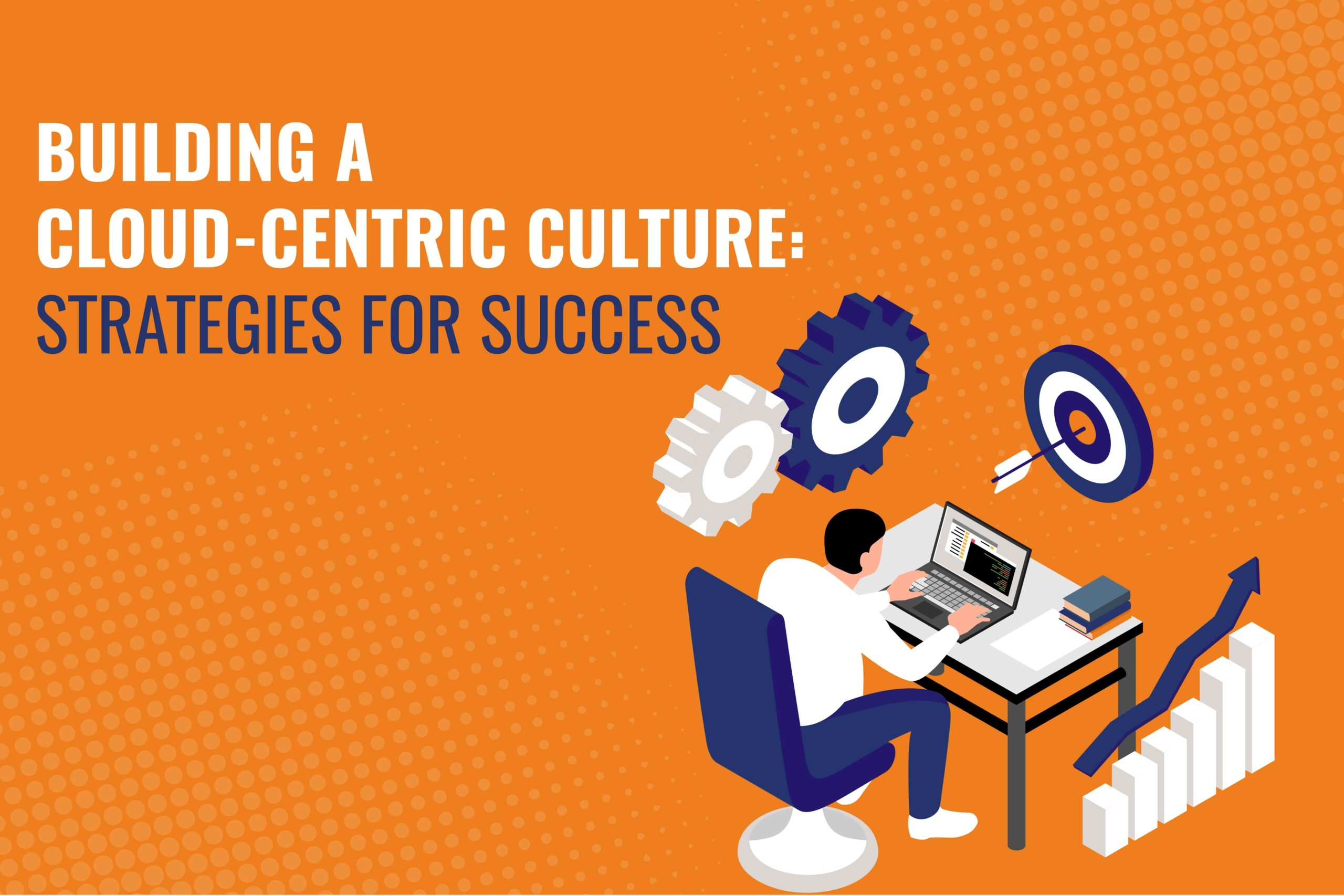
In today’s rapidly evolving business landscape, cloud transformation has become synonymous with innovation, agility, and competitive advantage. As organizations increasingly embrace cloud computing to drive digital transformation, building a cloud-centric culture has become crucial and imperative for success.
A cloud-centric culture is characterized by a mindset that embraces the transformative power of cloud technology and prioritizes. Its integration into every aspect of the organization’s operations, processes, and decision-making. It goes beyond merely adopting cloud solutions; it fosters a culture of collaboration, innovation, and continuous improvement.
One key strategy for building a cloud-centric culture is to promote awareness and understanding of the benefits of cloud transformation across the organization. This involves educating employees about cloud technology’s capabilities, its impact on business operations, and the opportunities it presents for driving innovation and growth.
Another critical aspect of cultivating a cloud-centric culture is to lead by example. Executive leadership must demonstrate a commitment to cloud transformation by championing its adoption. It invests in the necessary resources and infrastructure, and actively participates in cloud initiatives. Moreover, organizations must not only empower employees to become cloud advocates but also, consequently, champions within their respective teams and departments. This involves providing training and development opportunities to build cloud expertise and fostering a culture of experimentation and risk-taking.
Effective communication is also essential for nurturing a cloud-centric culture. Organizations should regularly communicate their cloud strategy, goals, and progress to employees, ensuring transparency and alignment. Organizations can cultivate a sense of ownership and commitment to the cloud transformation journey by keeping employees informed and engaged.
Furthermore, fostering collaboration and cross-functional teamwork is vital for building a cloud-centric culture. Cloud transformation often requires breaking down silos and facilitating cooperation between different departments and teams. Organizations can harness collective intelligence and creativity by encouraging collaboration and knowledge sharing.
In conclusion, building a cloud-centric culture is not only about adopting new technology but also about, therefore, transforming how people think, work, and collaborate by actively promoting awareness. It is leading by example, empowering employees, facilitating communication, and fostering collaboration, organizations
Read More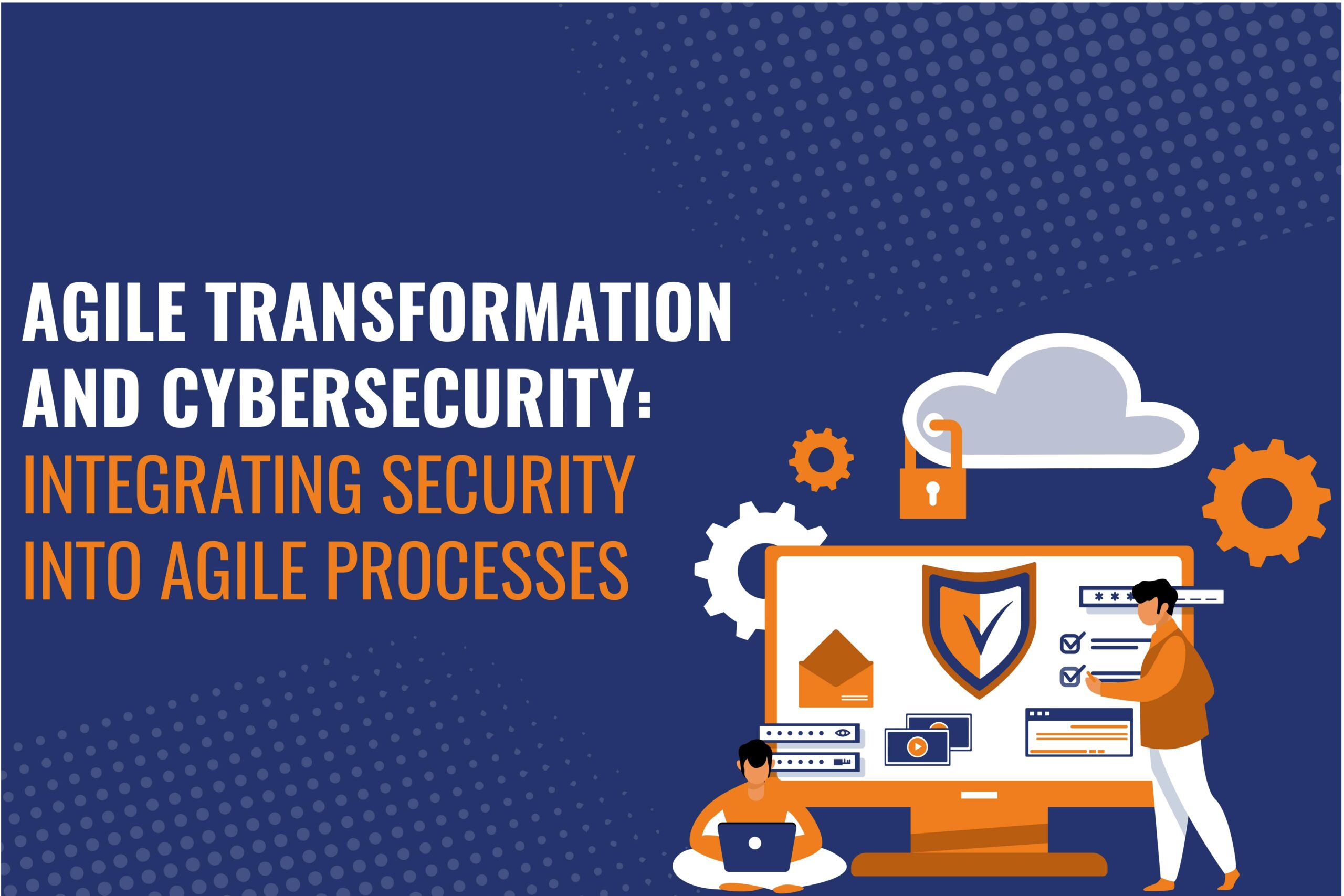
In today’s fast-paced digital landscape, agile transformation is necessary for businesses striving to stay competitive and responsive to evolving market demands. Agile methodologies enable organizations to adapt quickly to changing requirements, deliver products faster, and foster innovation. However, as businesses embrace agile practices, they must prioritize cybersecurity to safeguard their assets and maintain operational resilience.
For IT solution consultants, integrating security into agile processes is paramount. This involves seamlessly embedding security considerations into every stage of the software development lifecycle, from planning and design to implementation and deployment. By incorporating security practices into agile methodologies, organizations can mitigate risks and address vulnerabilities proactively rather than as an afterthought.
One key strategy for integrating security into agile processes is by leveraging automation. By automating security testing in CI/CD pipelines, teams can quickly detect and fix vulnerabilities throughout the development lifecycle. This accelerates delivery cycles and consistently applies security measures, reducing the likelihood of security breaches and downtime.
Furthermore, IT solution consultants are crucial in promoting a culture of security awareness and collaboration within agile teams. This collaborative approach fosters a shared understanding of security risks and responsibilities among team members, empowering them to take ownership of security outcomes.
An IT solution consultant offers expertise in implementing security best practices, including secure coding, threat modeling, and vulnerability management. By equipping agile teams with the knowledge and tools to prioritize security, consultants enable organizations to build resilient and trustworthy software products.
Ultimately, agile transformation and cybersecurity are intertwined aspects of modern business operations. As businesses embrace digital transformation, IT consultants will crucially integrate security into agile methods, ensuring successful and secure IT initiatives.
Read More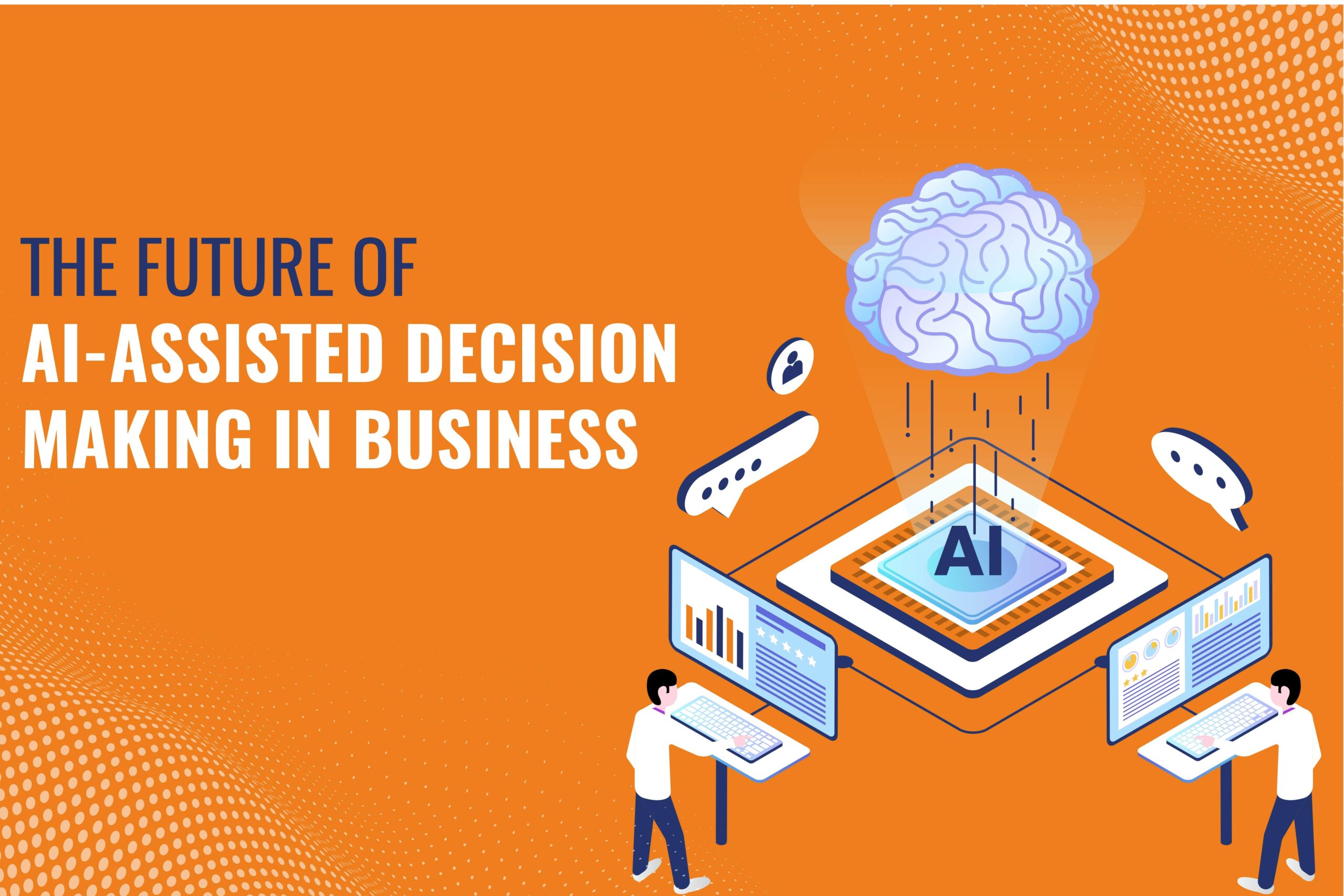
In the rapidly evolving landscape of modern business, integrating artificial intelligence (AI) is increasingly becoming a cornerstone of decision-making processes. This transformation promises to redefine how businesses operate, strategize, and compete in the global marketplace. As we peer into the future of AI-assisted decision-making, several key trends emerge, shaping how organizations harness AI’s power to drive success.
AI is set to transform decision-making by enhancing human intelligence with its unmatched capacity to swiftly process extensive data. AI systems use advanced algorithms and machine learning to analyze complex data, uncover patterns, and reveal hidden insights.
Furthermore, AI-powered decision-making holds the potential to optimize resource allocation and mitigate risks in an increasingly volatile and uncertain business environment. By leveraging predictive analytics and scenario modeling, AI systems can anticipate market trends, identify potential threats, and recommend proactive strategies to mitigate risks and capitalize on opportunities.
Moreover, AI-driven decision-making democratizes access to insights and expertise, empowering businesses of all sizes to compete on a level playing field. With the proliferation of AI tools and platforms, even small and medium-sized enterprises. So, it can harness the power of AI to streamline operations, optimize processes, and drive innovation.
The future of AI in business will see continuous advancements, integrating AI into every aspect of organizational operations. AI is set to impact all business areas, from customer service to financial forecasting, boosting efficiency, agility, and innovation.
So, the future of AI-assisted decision-making in business is bright and promising. It offers unprecedented opportunities for organizations to drive growth, innovation, and success. By harnessing the power of Artificial Intelligence to augment human intelligence, optimize resource allocation, and democratize access to insights. In addition, it embraces ongoing advancements in AI technology, and businesses can position themselves for long-term success.
Read More
Leave a Reply